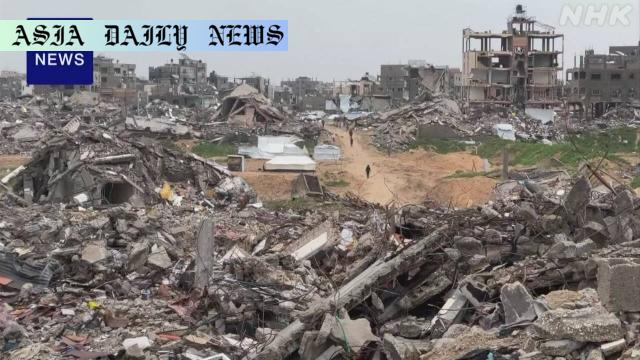Palestinians: US considers relocating 1 million Palestinians from Gaza to Libya, discussing proposals with Libyan leadership.
US is considering relocating up to 1 million Palestinians from Gaza.
The Trump administration has discussed this with Libya’s leadership.
Plan faces criticism from Arab nations and logistical challenges.
Billions of frozen US funds could be released to Libya in exchange.

Introduction: The US Plan to Relocate Palestinians
The controversial proposal by the Trump administration to relocate up to 1 million Palestinians from Gaza to Libya has been making waves in the international community. Official sources, including NBC News, revealed that discussions have already taken place with Libya’s leadership on the matter. This plan, which has not yet reached any final agreement, involves the potential release of billions of frozen US funds to Libya. The funds would act as an incentive for Libya to accept the relocation of Palestinians.
Challenges and Logistical Hurdles
Despite the proposal’s ambitious goals, significant obstacles lie ahead. The relocation of such a large population is expected to be extraordinarily expensive and logistically complex. Moreover, there remains considerable doubt about how many Palestinians from Gaza would voluntarily move to Libya, a country that has been mired in instability and division since the fall of Muammar al-Qadhafi in 2011. Overcoming these practical and political barriers will require careful planning, substantial resources, and international cooperation.
Opposition from Arab Nations
Arab nations, including Egypt and Jordan, among others, have already expressed concerns about the plan. The idea of relocating Palestinians to another country is not only geopolitically sensitive but also a potential trigger for further regional tensions. Critics argue that such a move could undermine the Palestinian right to self-determination and further complicate the long-standing Israeli-Palestinian conflict. These sentiments add to the already growing concerns about the feasibility and morality of the proposal.
Strategic Interests and Broader Implications
The relocation plan appears to be part of a broader strategy by the Trump administration to reshape the Middle East in alignment with specific geopolitical objectives. By potentially taking ownership of Gaza and investing in its reconstruction, the US aims to demonstrate its commitment to stabilizing the region. However, this vision is not without cost. Critics argue that such plans prioritize strategic gains over the well-being of the affected population, leaving many questions about the ethical implications.
Conclusion: A Contentious Proposal with Uncertain Future
While the plan to relocate Palestinians from Gaza to Libya may be under serious consideration, its implementation faces a litany of challenges. From logistical barriers to political opposition, the proposal is unlikely to move forward without significant international debate and revisions. Only time will tell if this proposal represents a genuine attempt at conflict resolution or if it is a political maneuver destined to fail. For now, the international community watches and waits, aware of the complexities surrounding such an unprecedented plan.



Commentary
The Human Cost of Relocation
At the heart of this proposal lies the human impact of relocating up to 1 million Palestinians. These are individuals with deep ties to their homeland, connections forged by generations of living in Gaza. The suggestion that they could be moved en masse to a country like Libya, which is itself struggling with internal conflict and fragmentation, raises serious ethical questions. One must consider the psychological toll on those who would be uprooted from their homes and resettled into a nation unfamiliar to them, with no guarantee of stability.
Implications for Regional Stability
The plan does not merely involve logistical challenges but also has profound implications for regional stability. Arab nations have repeatedly voiced their disapproval of such initiatives, viewing them as violations of Palestinian rights and an affront to regional sovereignty. This proposed relocation could escalate tensions, not just between the nations directly involved but also across the Middle East, where the Palestinian cause continues to resonate deeply. It is essential for policymakers to weigh these factors before advancing such contentious proposals.
A Call for Broader Dialogue
The idea of relocating Palestinians to Libya highlights the need for broader and more inclusive dialogue on resolving the Israeli-Palestinian conflict. Rather than pursuing unilateral moves that could exacerbate existing tensions, the international community must engage all stakeholders in meaningful discussions. The focus should remain on ensuring the dignity, rights, and security of affected populations, rather than pursuing politically motivated shortcuts that could lead to further instability.
Conclusion: A Path Forward
While the relocation plan may seem like a bold and innovative approach, it is fraught with challenges that cannot be overlooked. Addressing the longstanding issues between Palestinians and Israelis requires a solution rooted in mutual respect, international cooperation, and recognition of historical grievances. The world must approach this complex issue with caution, ensuring that any steps taken prioritize human rights and long-term peace.